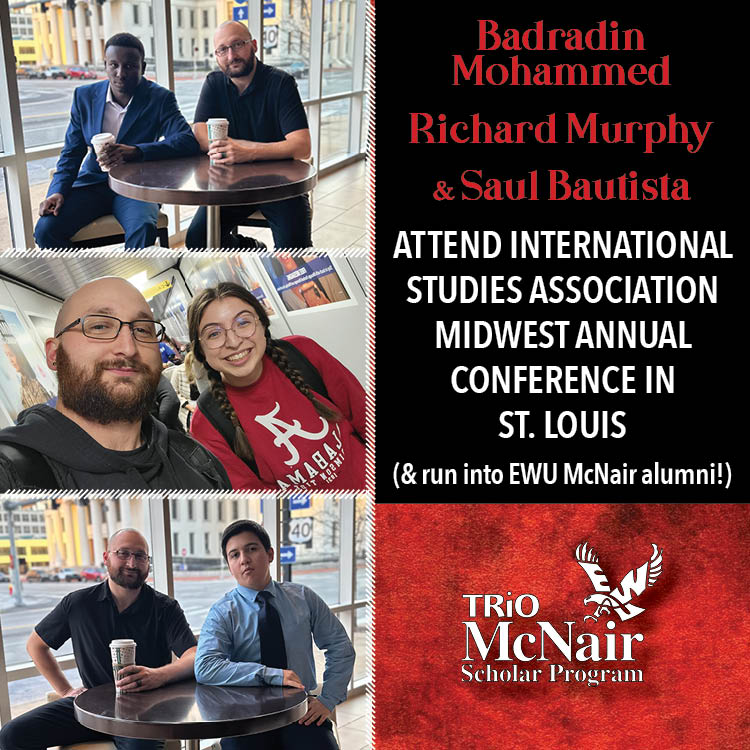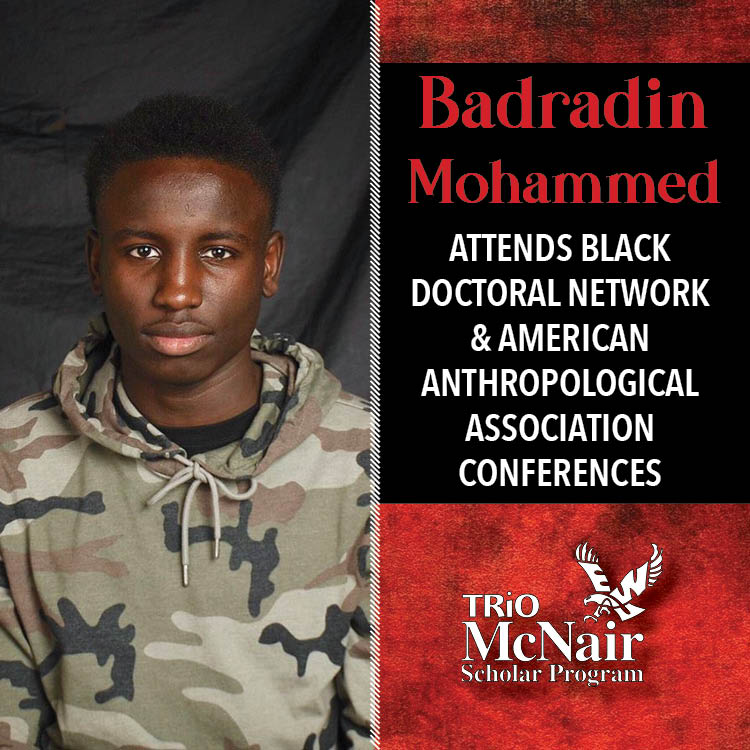Badradin Mohammed

Badradin Mohammed graduated from Eastern Washington University in Spring 2023 with a BA in International Affairs, with an emphasis on global security processes, and a minor in Political Science. He is the president of the International Affairs Community and a member of the PoliSci Book Club. His research is focused on Water Security and economic development in the global south. For his 2022 McNair Summer Research Internship, he will be working on the Nile River Conflict with his mentors, Dr. Kristin Edquist and EWU McNair Alum, and Ph.D. Candidate Alberto Felix Beltran.
Badradin received graduate school acceptances from Florida International University with the Steven J. Green School of International & Public Affairs – Doctoral degree program in International Relations – Combined MA/PHD AADS/INTLRL, Penn State University’s Master of International Affairs (MIA) degree program within the School of International Affairs, and George Mason University‘s Master of Science in Conflict Analysis and Resolution, in addition to University of Maryland‘s Government and Politics PhD Program, where he will attend with full funding, starting Fall 2023.
2022 EWU Faculty Research Mentors: Dr. Kristin Edquist and PhD Candidate Alberto Felix Beltran
Research Title: Water Politics: Changing Geo-politics and Changing Climate in the Nile Basin
Abstract: In the 21st century, transboundary water disputes have significantly increased. The growing demand and consumption of water resources have exacerbated scarcity and tensions. The Nile, shared by eleven basin states, is the most important water source in Africa’s northeastern region. Historically, the Nile River has been both a source of survival for its lower riparians (Egypt and Sudan) and a source of dispute between the Basin’s states. For years, tensions over water distribution between lower and upper riparian states persisted. As a result, in 1999, the Nile Basin Initiative (NBI) was formed to conclude a cooperative framework agreement (CFA) to serve as a permanent legal document in the Basin. However, disagreements between the states persisted, leading to Egypt and Sudan’s refusal to ratify the CFA. This paper provides an overview of the Nile River Basin dispute and analyzes the NBI and its effectiveness. The paper argues that the expected population growth in the Nile Basin and challenges, such as climate change and water scarcity, will leave Egypt and Sudan with no option but to ratify the CFA.

EWU McNair Scholar Badradin Mohammed Accepted to Penn State Master of International Affairs Program

EWU McNair Scholar Badradin Mohammed Accepted to Florida International University Doctoral Program

EWU McNair Scholar Badradin Mohammed Accepted to University of Maryland Doctoral Program

EWU McNair Scholar Badradin Mohammed Accepted to George Mason University MS Program

EWU McNair Scholars Present at the International Studies Association Midwest Annual Conference

EWU McNair Scholar Badradin Mohammed Attends Two Conferences

Badradin Mohammed Selected as an EWU McNair Scholar and Awarded Summer Research Internship


